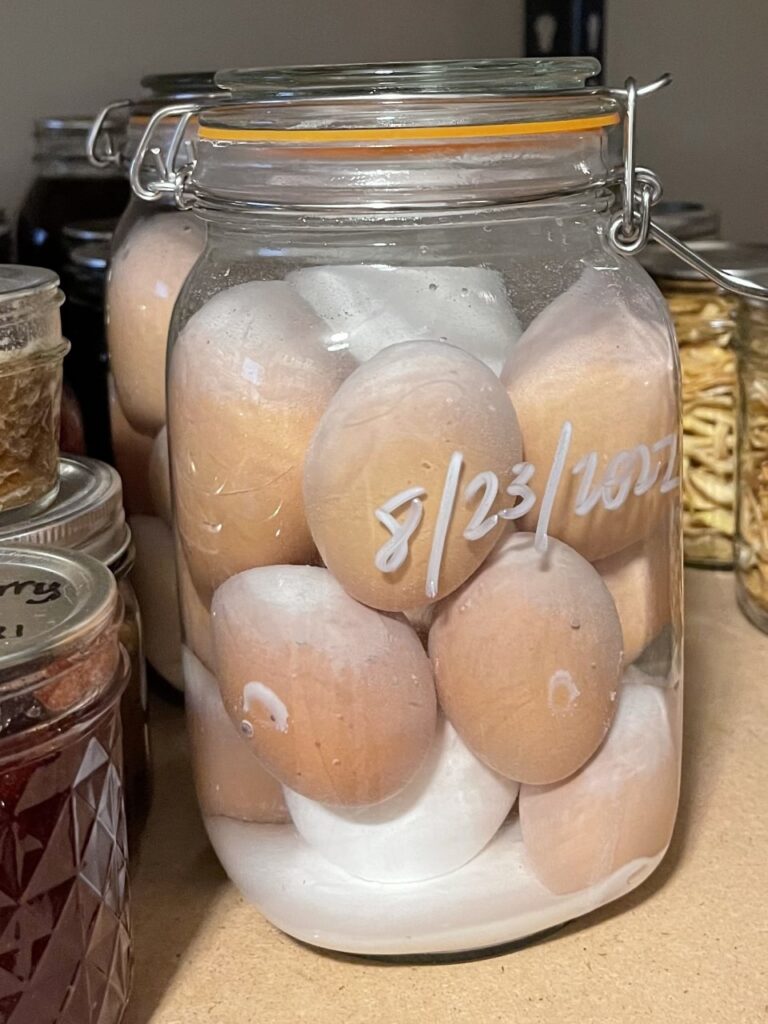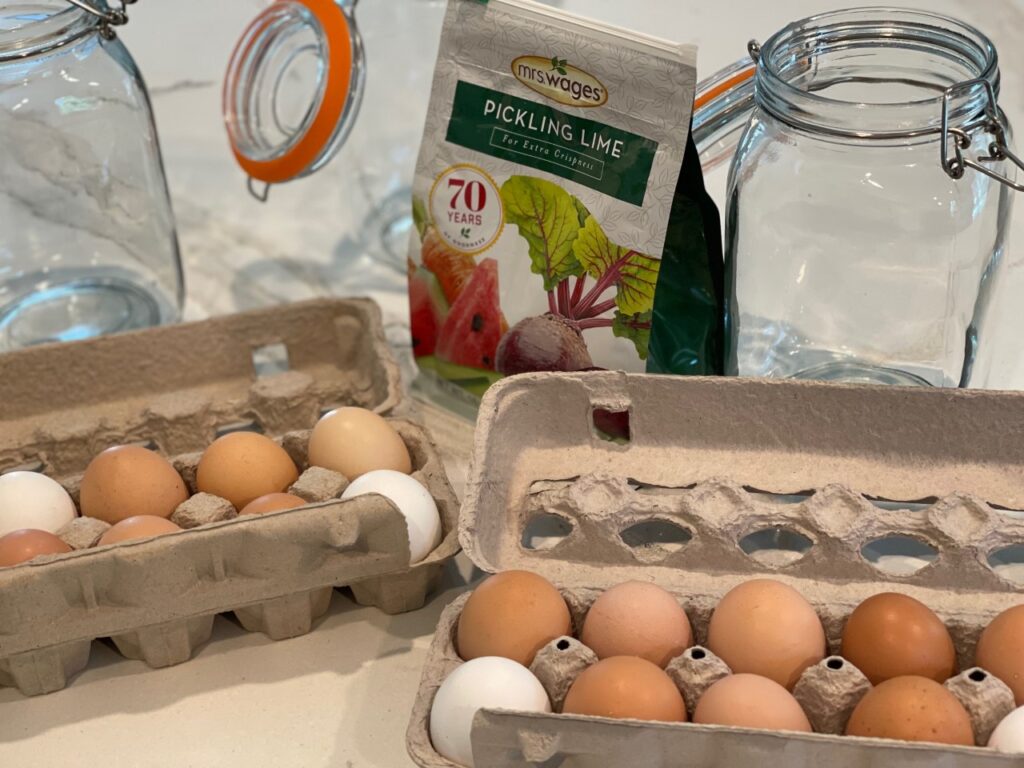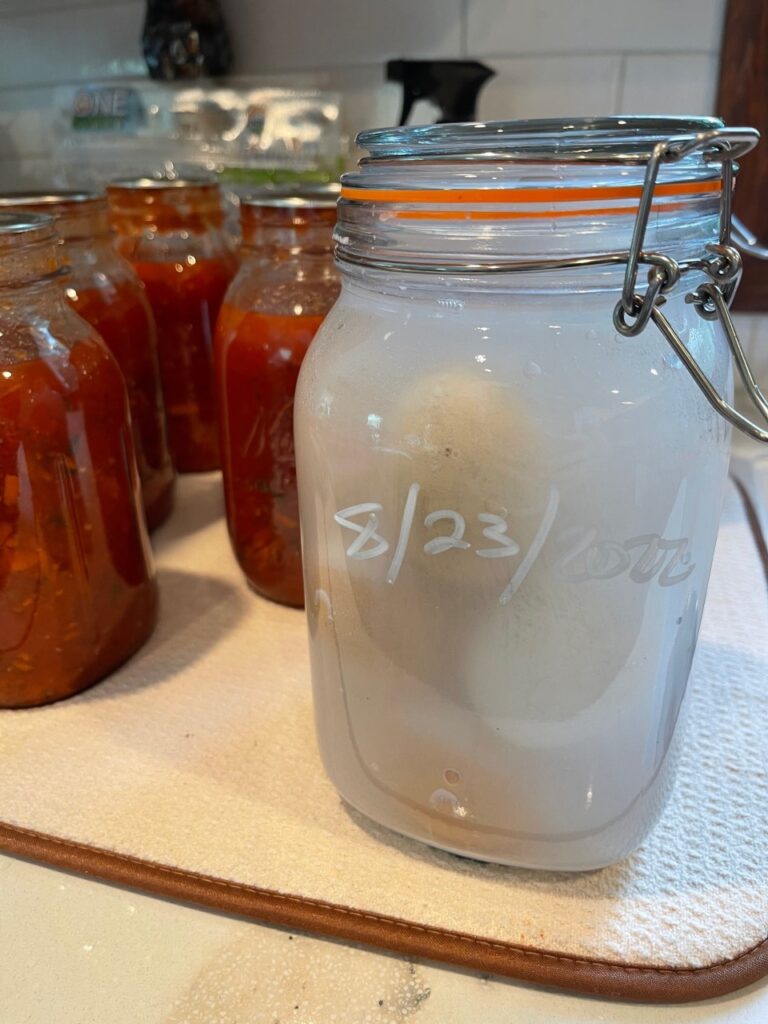Materials Needed For Water Glassing Eggs
Eggs
It is imperative to use farm fresh eggs with their bloom intact when water glassing. The bloom is a natural protective coating applied during laying which seals the porous egg shell with a coating to protect the baby from bacteria. This bloom is also the same covering which permits us the ability to glass for long-term storage. If you have your own layers, do not wash your eggs before storing.
A freshly laid egg with bloom intact can be stored at room temperature for up to a month before glassing. This is especially important as the hens slow their egg production.
Store-bought eggs, whether farm fresh or pasteurized, are not suitable for water glassing as the bloom has been removed, which is why you find them in the refrigerator section of the grocery store.
Storage Containers
Many farmers will use large containers like 5- and 3-gallon food grade buckets with air-tight fitting lids. While I do own these handy containers, which I purchased from uline.com, I decided not to store my water glassed eggs in them because once full, they are extremely heavy for me to move. Worse, giving the weight of the eggs all resting on the bottom layer, the risk of breaking an egg increases. And a broken egg is the last thing we want to have happen because it will spoil the whole lot!
Because I need ease of storage and use, I chose 50-ounce wide-mouth glass jars with a airtight fitting lids. Each jar holds one-dozen (12) eggs so retrieval it so much easier. Plus, every jar comes with an additional seal in the event it needs to be replaced over time.
One-gallon wide-mouth jars are also suitable for water glassing eggs. Just be sure you have a wide mouth jar versus a regular mouth or adding and retrieving eggs will be quite difficult.
Pickling Lime
While there are technically two products you may use to water glass fresh eggs, calcium hydroxide and sodium silicate, I personally prefer pickling lime (calcium hydroxide) because it is more commonly used in the food processing industry. There are many brands of pickling lime on the market, however I use Mrs. Wages products. It comes in a very convenient one-pound resealable package, and as you will soon learn, a little goes a long way!
Pickling lime can be caustic to the skin once exposed to water. It will drastically dry out your hands, or possibly even burn your hands, so be sure to use food grade gloves when handling and creating your lime solution. It also should not be ingested or inhaled either.
When opening your bag of pickling lime, be sure to cover your face and do not inhale upon using. Lastly, when retrieving eggs from the lime solution for use, protect your hands and thoroughly wash the eggs under running water to remove all traces of the lime solution.
Water Type
While there is a preference to using distilled water, I would be remiss to point out just about any water will work for water glassing unless it is overly treated water, such as city water with added chlorine and fluoride. Many of us with well water have minerals in our water and have successfully water glassed eggs without issue.
If you have access to farm fresh eggs with their bloom intact, and live with city water, not to worry. Simply boil your city water for 5 minutes, then let it cool completely before glassing.



